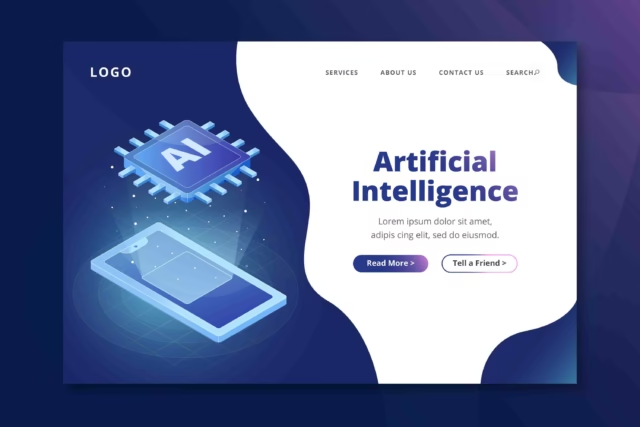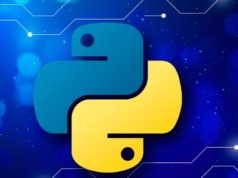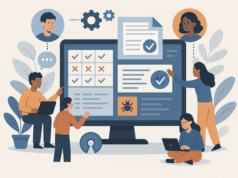Introduction
Artificial intelligence (AI) is becoming the engine of corporate innovation rather than a sci-fi idea. By 2025, firms will be using AI to automate procedures, optimize operations, and grow at previously unheard-of speeds. Although readily available AI tools are convenient, they frequently fall short of meeting the particular requirements of startups.
Custom AI development services can help with this. Unlike generic AI software, personalized AI solutions are tailored to a company’s specific challenges. Custom AI gives companies a strong, specialized approach to growth, whether it’s through chatbot-enhanced customer assistance, marketing campaign optimization, or trend analysis.
The essay delves into why custom AI development is the secret weapon for startup success in 2025, covering its benefits, implementation strategies, challenges, and emerging trends.
Understanding Custom AI Development
The process of developing AI-driven solutions that are especially tailored to a company’s requirements is known as custom AI development. Custom AI is created from the bottom up and customized to match a startup’s industry, data, and objectives, in contrast to ready-made AI technologies that provide generic functions.
Why Custom AI Is Transforming the Startup Landscape
Resource Optimization
For cash-conscious startups, AI solutions can automate costly processes without requiring large teams. Custom AI development ensures these systems address your specific pain points rather than generic business challenges.
Market Differentiation
In saturated markets, proprietary AI capabilities can serve as powerful barriers to entry. A custom recommendation engine or predictive analytics platform built specifically for your use case creates competitive advantages that aren’t easily replicated.
Rapid Iteration
Custom AI development allows startups to evolve their technology in lockstep with changing business requirements. This adaptability is particularly valuable in the early stages when pivots and refinements are common.
Key Components of Custom AI Development
- Machine Learning (ML): AI models that learn from data and improve over time.
- Natural Language Processing (NLP): AI-driven language understanding for chatbots, virtual assistants, and sentiment analysis.
- Computer Vision: Image and video recognition for applications like facial recognition or automated quality control.
- Predictive Analytics: AI models that analyze historical data to predict future trends and behaviors.
Why Startups Need Custom AI Solutions
1. Gaining a Competitive Advantage
Startups operate in highly competitive markets where speed, efficiency, and innovation are crucial. Custom AI solutions help businesses stand out by:
- Automating repetitive tasks to free up employee time.
- Personalizing customer interactions with AI-driven recommendations.
- Enhancing decision-making using data-driven insights.
2. Cost-efficiency and Scalability
Although custom AI development requires an initial investment, it saves money in the long run by automating processes, reducing manual labor, and increasing efficiency. Startups can scale their AI models as they grow, making them a future-proof solution.
3. Improved Customer Experience
In 2025, customer expectations are higher than ever. AI-driven solutions such as:
- AI chatbots for 24/7 customer support,
- Recommendation engines that suggest relevant products, and
- Voice assistants for seamless customer interaction,
All contribute to higher satisfaction, loyalty, and retention rates.
AI in Different Startup Sectors
AI is transforming multiple industries, giving startups in different sectors unique growth opportunities.
AI in Fintech Startups
- Fraud detection using machine learning algorithms.
- Algorithmic trading that predicts stock market trends.
- Automated customer support for financial services.
AI in Healthcare
- AI-driven diagnostics for faster and more accurate disease detection.
- Predictive analytics to anticipate patient needs and optimize hospital operations.
- Personalized treatment plans powered by AI models.
AI in E-Commerce and Retail
- Smart recommendation engines for personalized shopping.
- Automated inventory management based on sales predictions.
- AI-powered chatbots for instant customer assistance.
AI in SaaS and Cloud-Based Startups
- AI-driven automation to streamline business operations.
- Advanced analytics for better decision-making.
- Customer behavior analysis for personalized SaaS solutions.
The Process of Custom AI Development
Custom AI development involves several critical steps:
- Identifying Business Needs: Assessing how AI can solve specific challenges.
- Choosing the Right AI Technologies: Selecting between ML, NLP, or computer vision based on business goals.
- Developing & Training AI Models: Using real-world data to build AI algorithms.
- Testing & Optimization: Ensuring AI accuracy and performance.
- Deployment & Continuous Improvement: AI models require ongoing updates to stay effective.
Challenges in AI Development for Startups
1. High Initial Costs
Developing a custom AI solution can be expensive, but the long-term benefits outweigh the investment. Many AI development companies now offer flexible pricing models for startups.
2. Data Privacy and Security Risks
AI relies on large amounts of data, making security a top concern. Startups must comply with data protection laws like GDPR and CCPA to ensure privacy.
3. Need for Skilled AI Talent
Building AI requires expertise in data science, programming, and AI model training. Startups often outsource AI development to experienced agencies to overcome skill shortages.
Key Benefits of Custom AI Development
- Increased Efficiency – AI automates repetitive tasks, allowing human resources to focus on high-value work.
- Better Decision-Making – AI-driven analytics provide real-time insights for data-driven strategies.
- Revenue Growth – AI-powered marketing, sales predictions, and automation drive higher profitability.
Challenges in AI Development for Startups
Despite its advantages, AI development comes with challenges:
- High Initial Costs – Custom AI solutions require significant investment.
- Data Privacy Concerns – Startups must ensure compliance with data protection regulations.
- Skill Gap – AI development requires expertise in data science, programming, and AI model training.
How to Choose the Right AI Development Partner
When selecting an AI development company, startups should consider:
- Industry Experience – Does the agency have experience in your sector?
- Technology Stack – Are they skilled in relevant AI tools?
- Scalability & Support – Do they offer post-launch maintenance?
- Portfolio & Case Studies – What previous AI projects have they completed?
Choosing the right AI development partner can make or break your startup’s AI success.
Future Trends in AI for Startups (2025 & Beyond)
1. The Rise of AI-Driven Automation
More businesses will use AI to automate:
- Sales and marketing processes,
- HR and recruitment tasks,
- Customer support interactions.
2. AI Ethics and Responsible AI Development
AI bias, fairness, and transparency will be major concerns. Startups must prioritize ethical AI development to maintain trust.
3. No-Code AI Solutions for Non-Technical Founders
No-code and low-code AI platforms will empower entrepreneurs without coding experience to build AI-driven businesses.
Conclusion
Custom AI development services will be a game-changer for startups in 2025. With the right AI strategy, businesses can automate processes, improve efficiency, and gain a significant market advantage. Although challenges exist, the benefits far outweigh the risks, making AI a crucial investment for any startup looking to thrive in the digital era.
FAQs
- How much does custom AI development cost for a startup?
- The cost varies based on complexity but typically ranges from $10,000 to $500,000.
- How long does it take to build a custom AI solution?
- Development can take anywhere from a few months to a year, depending on requirements.
- Can small startups afford AI development?
- Yes, with budget-friendly AI-as-a-Service (AIaaS) models, even small startups can leverage AI.
- What industries benefit the most from AI adoption?
- Fintech, healthcare, e-commerce, SaaS, and logistics see significant AI benefits.
- What are the risks of implementing AI in a startup?
- Potential risks include data privacy issues, high costs, and AI model biases.







